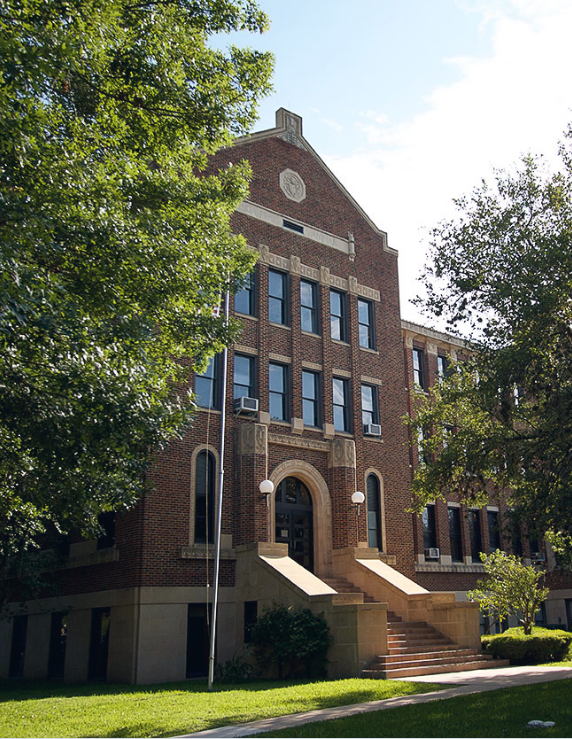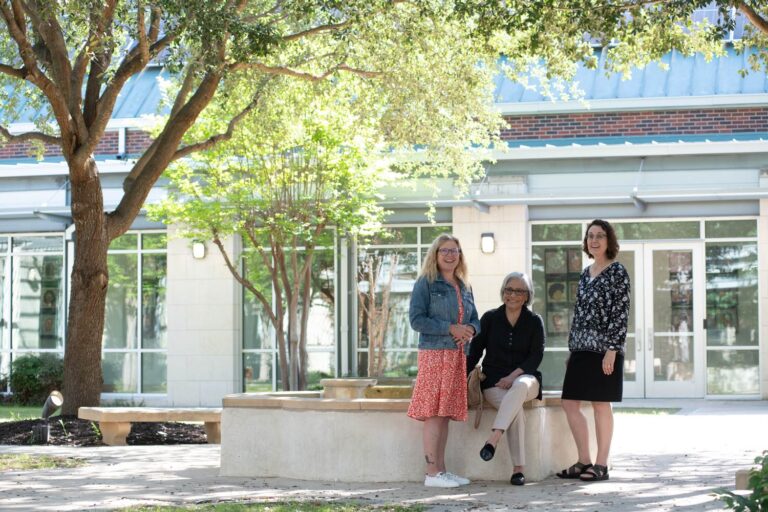Extra ecclesia nulla salus. This Latin line that means “outside the Church there is no salvation” states a truth we as Christians have held for centuries. For many of those centuries the ecclesia of this saying was identified with the Roman Catholic Church. Today it is understood differently. How did this happen?
It happened at Vatican II during the debate on what would become the Constitution on the Church. The term in the phrase extra ecclesia nulla salus that raised the most interest was ecclesia or Church. Outside what Church is there no salvation? It was a serious debate over the nature of the Church and who belongs to it. There was no debate to remove extra ecclesia nulla salus as part of Catholic doctrine. That still stands. The council did however, change the way we talked about and understood ecclesia.
While ecclesia was always theologically larger than the visible, historic confines of the Roman Catholic Church, it was widely preached that ecclesia was essentially the Roman Catholic Church. Since the discussion on the Constitution on the Church (Lumen gentium) included the early discussions on ecumenism, it was important to determine whether this Church in extra ecclesia was solely the visible Roman Catholic Church or something else. During the debate, one bishop quipped “every Catholic schoolboy knows the Church includes the Communion of Saints.” That pretty much determined the Church in extra ecclesia was something other than the visible Roman Church.
So if ecclesia is not the Roman Catholic Church, what is it? Vatican II was very careful with its use of the term Church. If it meant the Roman Catholic Church, it said just that, Roman Catholic Church. If it meant something else, it simply said Church. The term Church means the one, true, Church of Christ. This one, true, Church of Christ the council stated, “subsists” in the Roman Catholic Church.(LG #8) Whole libraries have been written on what the term “subsists” means in this context. The best definition I know is one presented by Giuseppe Alberigo. Alberigo says subsists means “realized without being exhausted.” Thus the Church of Christ is realized within the Roman Catholic Church, that is, made visible, made real; but not exhausted, depleted or consumed, so that elements of the Church of Christ may be found outside the Roman Catholic Church. These same elements also acknowledge a very real truth, that anyone who is Baptized in faith is a Christian and therefore a brother or sister in Christ. The council fathers wrote in the Decree on Ecumenism that “. . .the separated Churches and communities as such,. . .have been by no means deprived of significance and importance in the mystery of salvation. For the Spirit of Christ has not refrained from using them as a means of salvation. . .” (UR #3) It is for this reason, that the Spirit has not refrained from using these communities as a means of salvation, that the term “subsists” was used. It was meant to extend the Church of Christ beyond the confines of the Roman Catholic Church while not diminishing the Church of Christ within the Roman Church.
The ecclesia of extra ecclesia nulla salus extends beyond the visible confines of the Roman Catholic Church. Once the Constitution on the Church (LG) begins to describe who is joined or related to the Church (note this means the Church of Christ) in #14, it starts with those who are “fully incorporated,” meaning those who are “joined in the visible structure of the Church of Christ” (LG #14). We already know this structure “subsists” in the Roman Catholic Church. It continues with catechumens, who are joined to the Church by the explicit intention to join her. Then those who are Christian, but do not carry the name of Catholic are also joined to the Church. (LG #15) Then it moves to those who “have not yet received the gospel.” The ones mentioned in here are Jews, Muslims, those who seek the unknown God in shadows and images, those who seek God with a sincere heart, and those who, even without explicit knowledge of God, strive to lead a good life. (LG #16).
By the time this section is complete, all of creation, all people are in some way incorporated, joined to, or related to the Church of Christ. So to say extra ecclesia nulla salus is to say anyone who is not incorporated, joined to, or related to ecclesia is outside the Church. Everyone is connected in some manner, however. Salvation is available to all. This was the message of the council. This is the basis for what then Cardinal Josef Ratzinger wrote in Dominus Jesus stating there is no salvation outside Christ and the Church. Church here extends beyond the visible confines of the Roman Catholic Church.
To be sure, there are many fine nuances included in this section of the Constitution on the Church. Some of these nuances are there to emphasize the Spirit’s use of all Christian communities as means of salvation. Some emphasize the normative nature of visible Roman Catholic Church. What is important to remember from this is that the Council wanted to be clear that anyone Baptized in faith is a Christian. They also wanted to be clear that anyone who seeks God in any way may find salvation through Christ and through the Body of Christ, the Church. Extra ecclesia nulla salus still stands. We desire all to know the Christ we know, to be part of the Church we know. So we live our lives in a manner that preaches the gospel to every creature, whether baptized or unbaptized, knowing that Christ is working in their lives in some way.
Ultimately, Vatican II described the Church in terms of relationship or communio. That why the list of those related to the Church covers all of creation. It’s all in some sort of relationship with God through Christ.
Vatican II left extra ecclesia nulla salus in place. It defined ecclesia in a more comprehensive manner so that all theological points, including those on salvation, mission, and baptism, were covered in the definition. Protestants and their respective Christian communities, are members of the Body of Christ and therefore achieve salvation. Is there more? Yes, there is always more and we should say so. Can we say Protestants are going to hell? Without a doubt, no. They are brothers and sisters in Christ who bring gifts to the One, True, Church of Christ that draws all Christians toward unity.
Scott Woodward, D.Min. is the Academic Dean of Oblate School of Theology, where he has been focused on ecumenical and interreligious dialogue for over twenty years. Dr. Woodward has taught in the area of pastoral theology, including ecumenism, lay formation for ministry, Vatican II and its reception, Church History. His current research concerns the contribution of the Archdiocese of San Antonio to Vatican II and how Vatican II affected the archdiocese.



